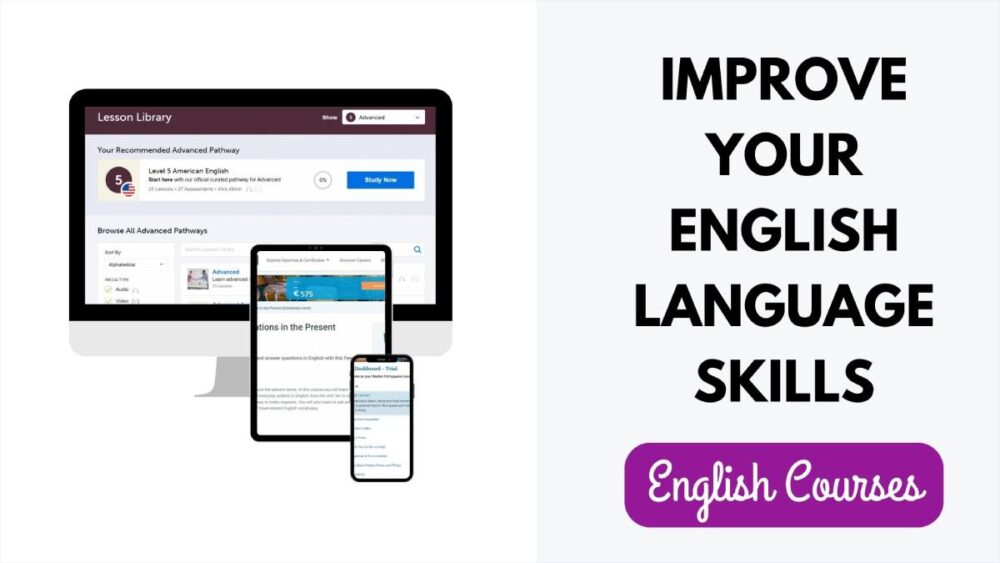“Thank you for the heads-up” is a phrase used to show appreciation for someone who has given you information that could be potentially helpful.
It is usually used to respond to someone who has just warned you about something, such as an incoming storm or an unexpected change in plans.
But how exactly do you use this phrase correctly? And when is it appropriate to say it?
In this blog post, we will answer all of your questions about the idiom “thank you for the heads-up” and give some examples of its usage!
Heads Up Meaning
If you ever hear anyone saying “heads up,” it means “lookout!” or “be careful!” It is a warning to the other person.
It is important to listen and take action when you hear this phrase!
It can often be used to warn about a danger overhead.
For example, this phrase is often used in sports. If you are playing a game of catch and the ball will hit a person, you might say “heads up!” to warn the person so they can get out of the way.
Heads-Up or Heads Up
As an exclamation, we can shout or exclaim, “heads up!” This calls immediate attention to danger or warning. We don’t need to use a hyphen when “heads up” is an interjection.
“Heads-up” spelled with the hyphen can be a noun or adjective.
As a noun, heads-up gives a warning. For example, “just sending a heads-up that the inspector is coming!”
Heads-up can also be used as an adjective to mean alert and resourceful, although it seems less common to use it in this way. “The heads-up team played amazingly on the field.”
Other Example Sentences With “Heads Up” and “Heads-Up”
- “Heads up, the boss is coming!”
- “Be careful; there’s a hole in the ground. Heads up!“
- “Hey, just a heads-up… The deadline is next week!”
- What‘s the heads-up on the new project plan?
- “Give me a heads-up before you leave.”
- “Heads up, JK Rowling fans, a new Harry Potter film is being released!”
Thank You For the Heads-Up: Meaning and Usage
When someone gives you a heads-up about something, they are letting you know about an event or situation that will happen in the near future.
This information could be helpful to you, so thanking the person who gave it to you is always polite.
You can say “thank you for the heads-up” in response to someone who has just given you a warning, or you can say it as a general thank you for any information they have shared with you.
Here are some examples of “thank you for the heads-up” in action:
Example 1
In this scenario, a storm is coming. Person A warns Person B about the storm.
Person A: The storm is going to hit in about an hour, so make sure you take your things inside.
Person B: Thank you for the heads-up! I’ll go ahead and move my car to the garage.
Example 2
In this scenario, there is a speed camera on the road. Person A warns Person B about the speed camera.
Person A: There is a speed camera on the N7.
Person B: Thanks for the heads-up! I’ll be careful.
In all of these examples, Person B is thanking Person A for informing them of an upcoming event. This phrase can be used in any situation where someone has given you helpful information.
Is “thank you for the heads-up” formal or informal?
“Thank you for the heads-up” is an idiom that is predominantly used in informal situations.
It can also be used in business settings between colleagues. It is still a relaxed, more informal phrase, however.
Thank You For The Heads-Up: Alternatives
If you don’t feel like saying “thank you for the heads-up”, there are a few alternatives that you can use.
Here are some examples:
- Thanks!
- I appreciate it.
- Thanks for letting me know.
- That was helpful of you.
- Thanks for the tip.
- Thanks for that.
- Thanks for the warning.
- Thanks for the advanced notice.
- Thanks for tipping me off (to tip someone off means to warn someone about something that will happen so to give that person an advantage)
How do you say “thank you for the heads-up” professionally?
You can say “thank you” instead of “thanks” when you want to sound more formal.
Other ways to say it:
- Thank you. I appreciate it.
- Thank you for that.
- Thank you for letting me know.
- Thank you for your help.
- Thank you for the advanced notice. (most formal)
- Thank you for the tip. (least formal)
- These phrases can also be used in emails:
- Thank you for the advanced notice.
- Thank you for letting me know.
- Thank you for your help.

Origin of the Term Heads-Up
According to The Wall Street Journal, the term “heads-up” originated from basketball practice and military drills.
At the time, heads-up encouraged soldiers to straighten their backs and hold their heads high. It also meant for them to be strong and vigilant, metaphorically speaking.
In baseball in the 1900s, “heads-up” was a phrase that reminded the team to stay alert and be ready for the ball when it comes.

You may also be interested in: 15 Best Online English Courses Free & Paid (2022)
Thank You For The Heads-Up: Conclusion
In this blog post, we have answered your questions about the phrase “thank you for the heads-up.” We have explained what it means and how to use it correctly.
We have also given some examples of its usage in different situations. “Thank you for the heads-up” is a polite way to show gratitude for someone who has shared helpful information with you.
When do you use the phrase “thank you for the heads-up?”
Language Pack
6-Day English Challenge
Sign up for my free 6-day challenge + English vocabulary planner to improve your English skills. Practice for just 10 minutes per day and see the results! Sign up here.
One-on-One and Group Classes (Free Trial!)
Language lessons and targeted rapid learning at Lingoda to improve confidence. Classes are available 24/7 in English, Business English, German, French, and Spanish. Get a 7-day trial here.
Learn to READ AND WRITE
Learn how to write the letters of the alphabet and common English words with my printables available here. Improve early reading scores by 74% with the early learning program Homer.
Most Common Words in English
Did you know 3000 words in English make up about 95% of everyday conversation? Learn the 2000 most common words in English completely FREE when you sign up for English Class 101— no credit card required! Also, check out their monthly free gifts selection.
English Language Learning Videos
Study and learn English independently and at your own pace with the successful Building Your English Brain and English Vocabulary Launch: Upgrade your Speaking (intermediate).
Useful Links
- 20 Best Ways to Respond to “How Is Your Day Going”
- 40+ Different Ways to Say Goodnight To Family, Friends & Lovers
- Best Ways To Respond To “Hope All is Well” (Formally and Informally)
- Have a Great Weekend or Have a Nice Weekend?
- “Play Stupid Games Win Stupid Prizes” Phrase Meaning and Origin
Caitriona Maria is an education writer and founder of TPR Teaching, crafting inspiring pieces that promote the importance of developing new skills. For 7 years, she has been committed to providing students with the best learning opportunities possible, both domestically and abroad. Dedicated to unlocking students' potential, Caitriona has taught English in several countries and continues to explore new cultures through her travels.

